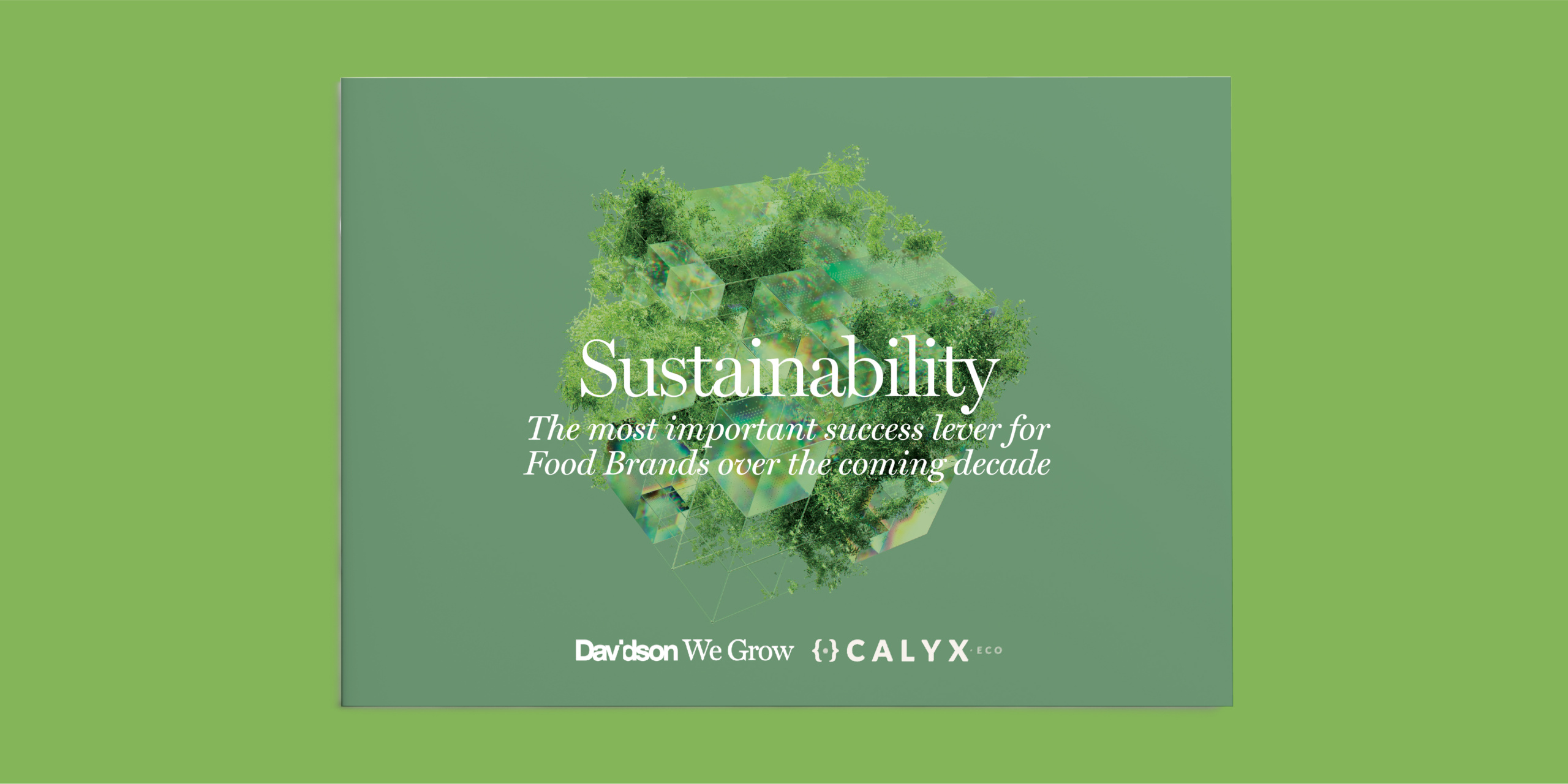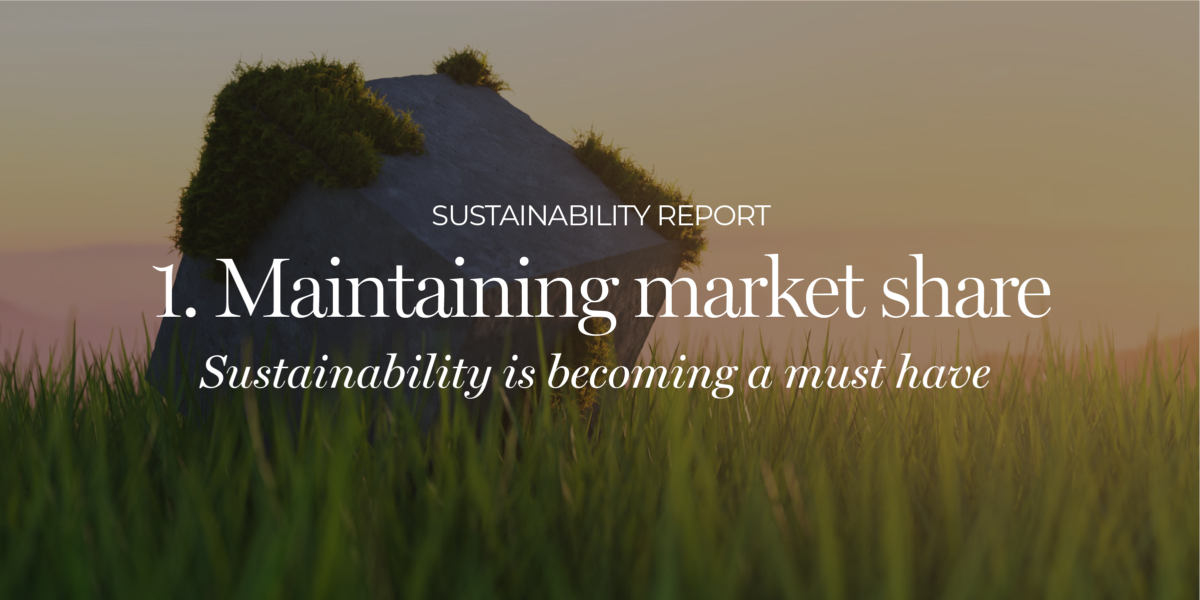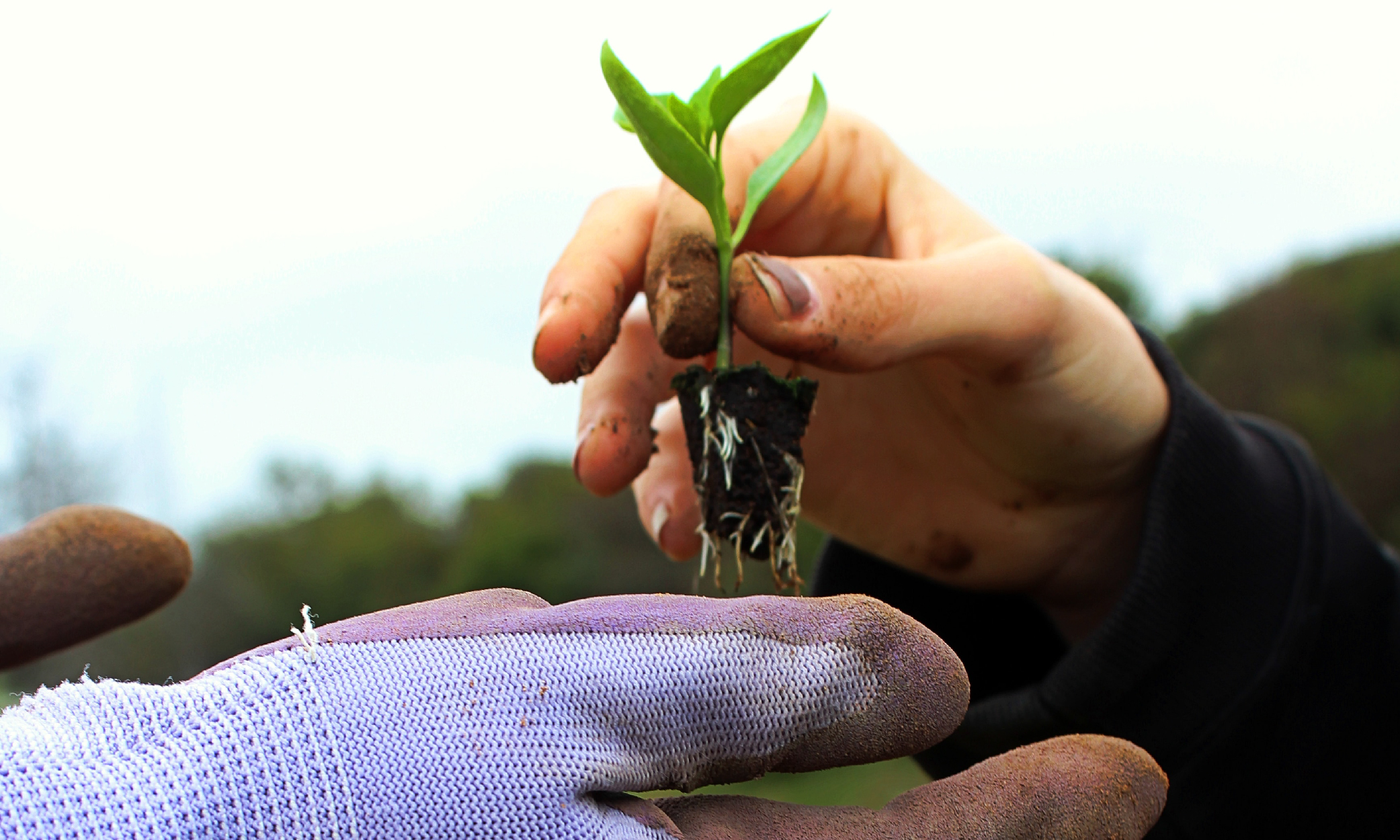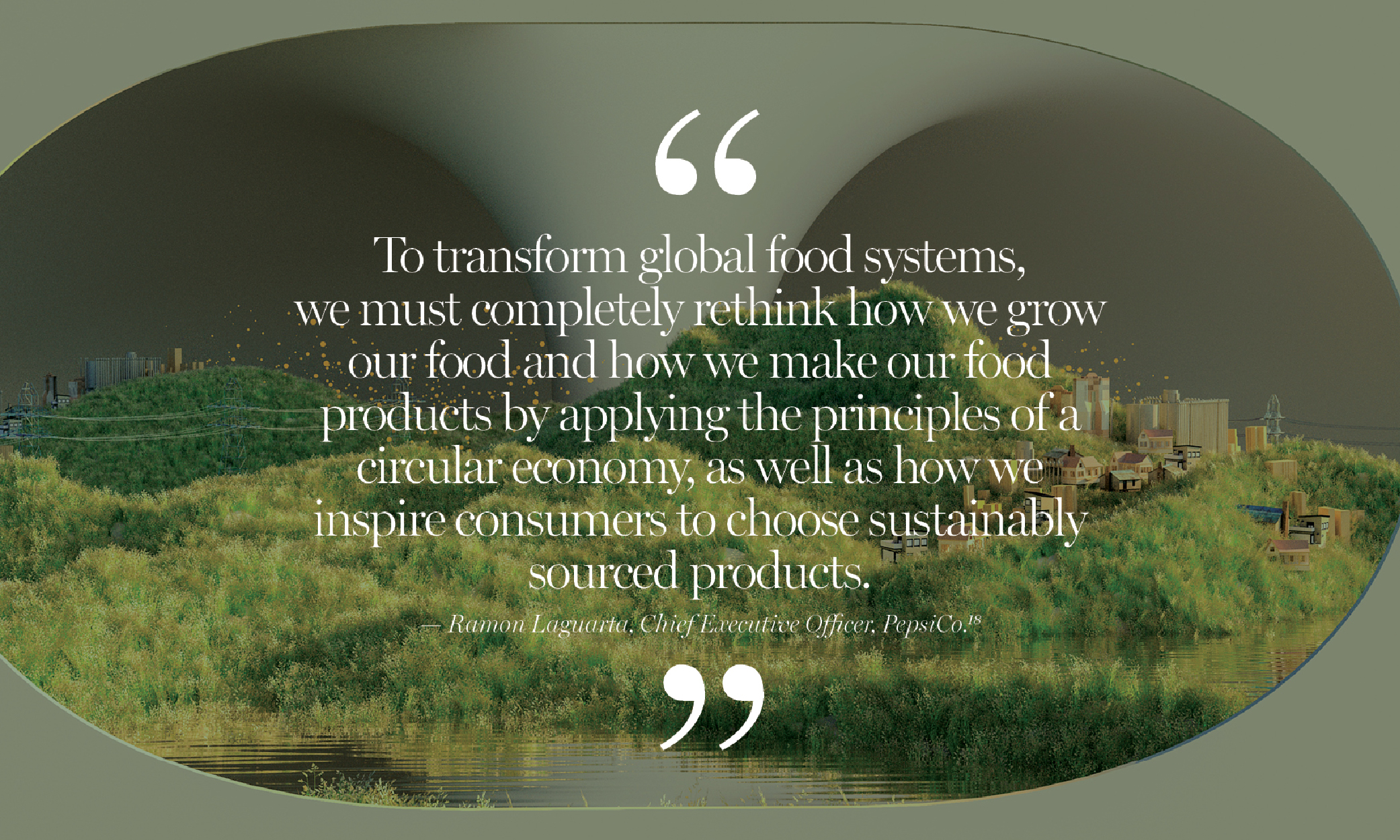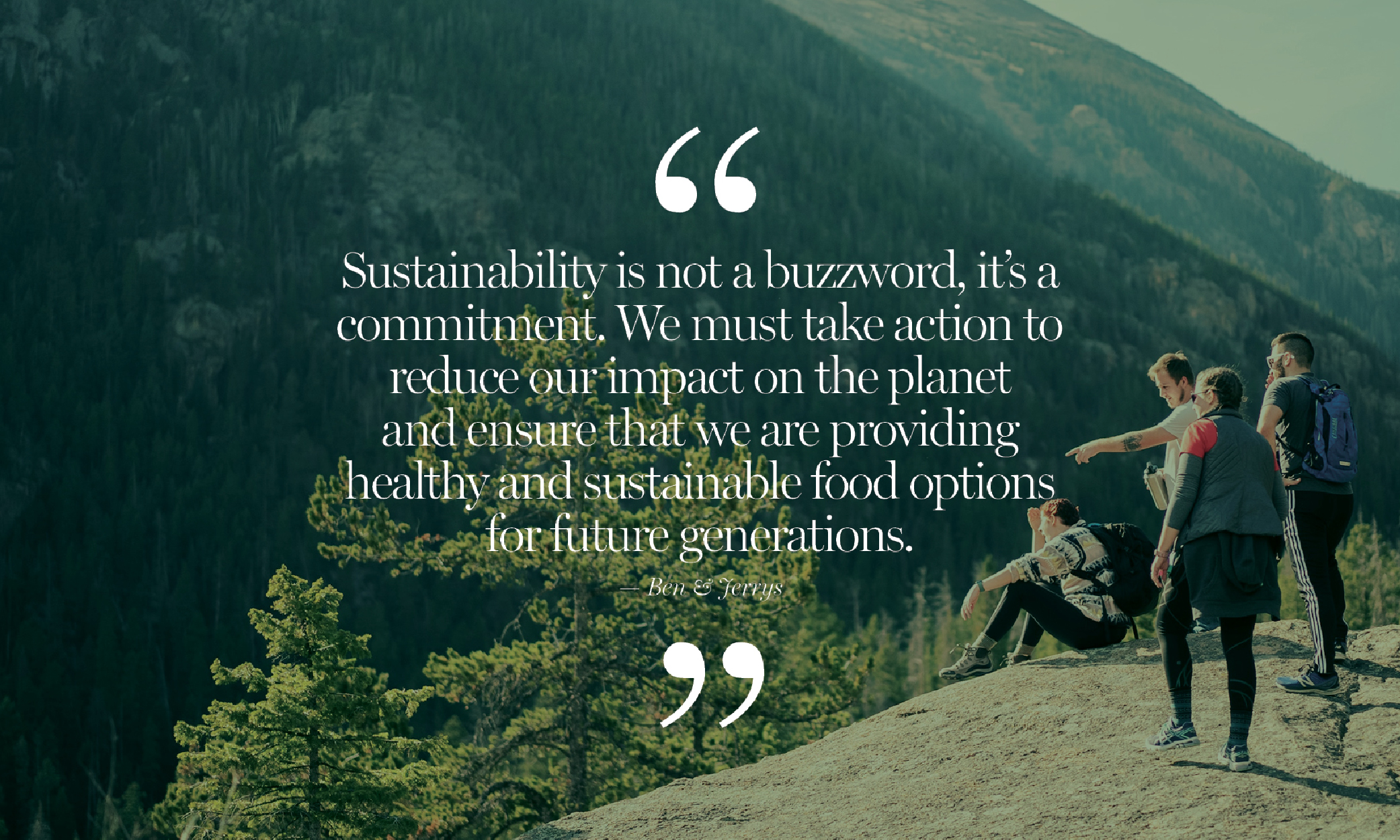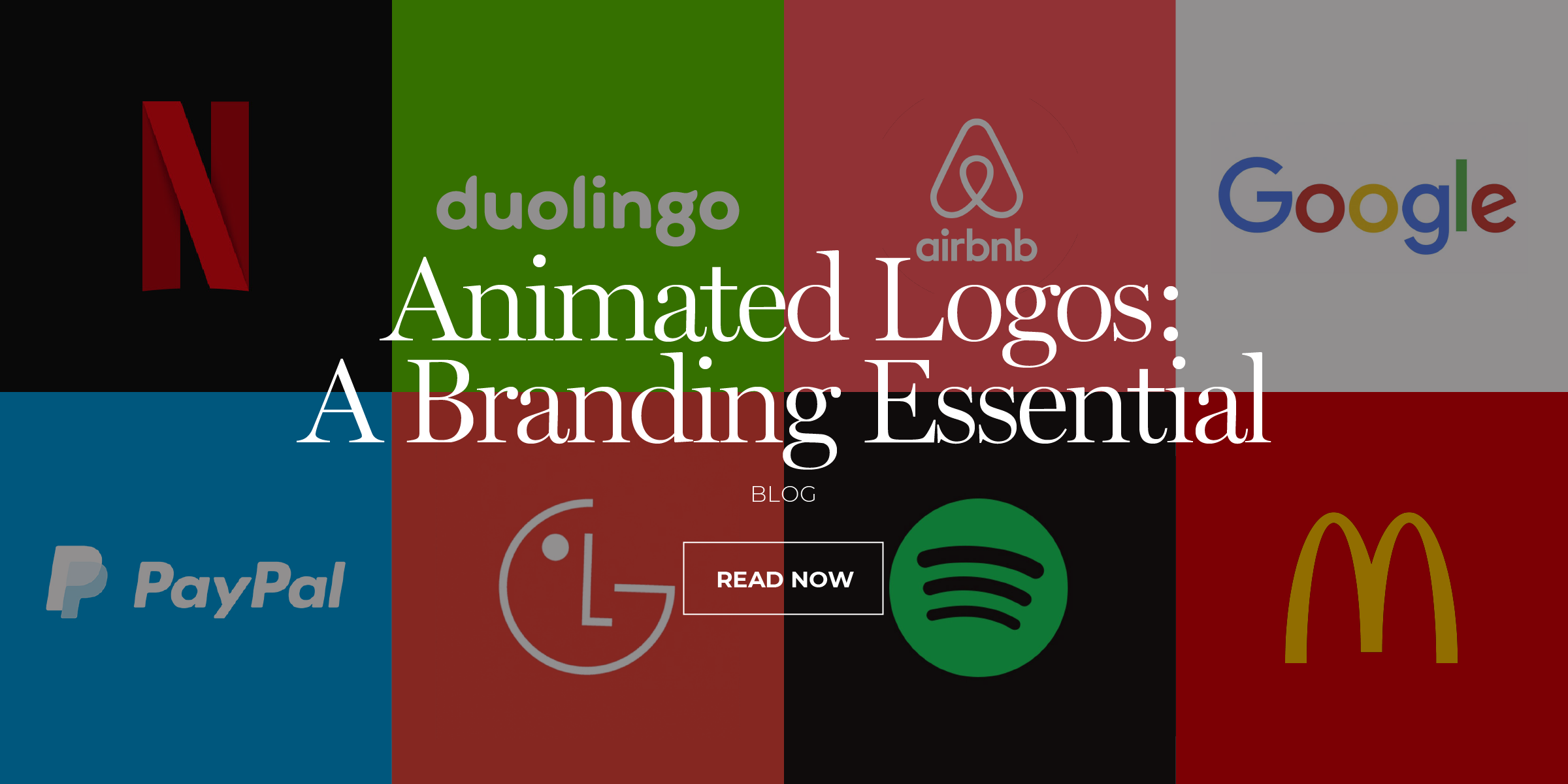More than 100 countries have set targets to reach climate neutrality over the coming decades and regulation to deliver on this. Globally more than 4838 companies have set targets to reduce their emissions in line with climate science through science based targets. For businesses this means that sustainable initiatives are now key to creating long-term value and competing in a global economy. Sustainability is no longer just a marketing bonus.
The Consumer Brands Association reported that the world’s Top 50 CPG brands have all made commitments in the areas of packaging, climate change and water usage. Nine out of ten business leaders said that consumers hold them accountable for the environmental impact that their company makes, even more so than shareholders, employees and regulators.
Positioning sustainability as the key driver for growth over the coming decade, starting with maintaining market share as a base is evident from global statistics.
- According to a survey by the United Nations Global Compact, 93% of CEOs believe that sustainability is important to the future success of their business.
- A study by the Boston Consulting Group found that companies that prioritize sustainability outperform their peers in terms of revenue growth and profitability.
- A survey of global investors found that 78% take ESG factors into account when making investment decisions, and that companies with strong ESG performance tend to have lower costs of capital and higher valuations.
- According to a report by the Global Sustainable Investment Alliance, global sustainable investment assets reached $35.3 trillion in 2020,a 15% increase from 2018.
- A study by McKinsey & Company found that companies that integrate sustainability into their core business strategy tend to outperform their peers over the long term.
Sustainability Advantage
The generational transfer of wealth to millennials is driving a trend towards value based consumption. Millennials live and shop by their values and they expect their favorite brands to do the same. 80% of Australian CEOs cite their biggest concern for future growth is how Millennials’ differing needs would change the way companies do business.
To build sustainability advantage, mitigate risk in the face of a changing climate and capture
market share your efforts must be genuine and embedded across your business. Sustainability is not a one off commodity you can buy, it’s a mind set and a way of operating that includes the planet as a key stakeholder in your business.
To achieve this sustainability needs to be deeply embedded across your business through strategy, brand, and operations. Your pillars must include circularity, net zero and nature. Your approach should show vulnerability and acknowledge the long term commitment to continuous improvement and excellence. Notably any genuine effort to address sustainability must be underpinned by credible data, understanding materiality and the impact of your efforts.
SUSTAINABILITY REPORT
